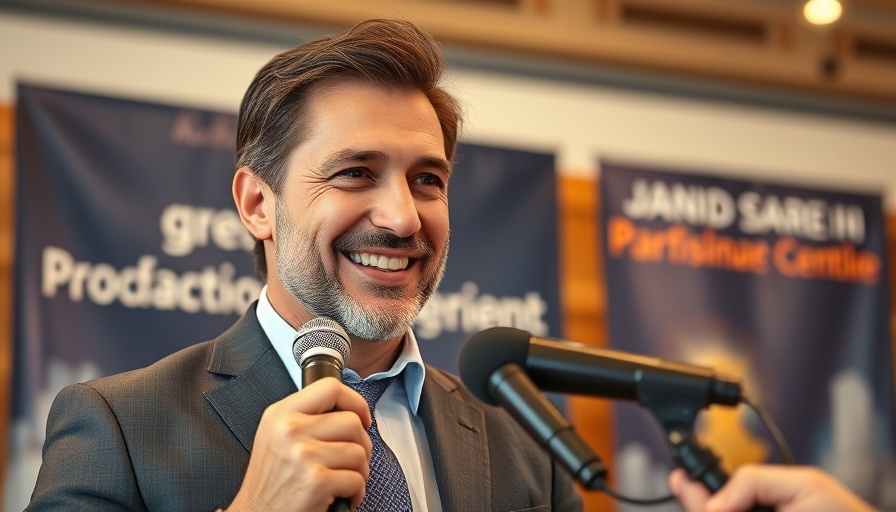
Unpacking the Challenges of Buffalo Metro: A Call for Accountability
In an urgent engagement with Buffalo City Municipality, Deputy Minister for Co-operative Governance and Traditional Affairs, Dr. Dickson Masemola, shone a stark light on the pressing governance and service delivery challenges plaguing the Buffalo City Metropolitan Municipality in East London, Eastern Cape. This oversight visit, themed "Every Municipality Must Work," forms part of a strategic initiative aimed at identifying and resolving critical issues within municipalities across South Africa.
Spotlight on Governance Failures
During his visit, Masemola expressed significant concerns regarding the municipality's spending practices, particularly on incomplete projects, alongside an inadequately functioning billing system that exacerbates poor revenue collection. He stated, "Not all is well," a sentiment that resonates with the frustrations of residents and stakeholders who are left grappling with the shortcomings of their local government.
These governance issues cannot be separated from the underlying political framework, as emphasized by Eastern Cape Cogta MEC, Zolile Williams. Williams highlighted that political interference in administrative matters is hindering progression. "Politicians must get out of administration... This interference makes it difficult for Buffalo City to function properly, " he stated, setting the stage for a crucial dialogue about the separation of powers and responsibilities within government institutions.
The Crucial Role of Accountability
The accountability discourse was further echoed by Buffalo City Metro Executive Mayor, Princess Faku, who attributed current plights to the incompetence of senior officials. She emphasized the dire need for administrators to fulfill their roles efficiently, noting that the municipality has been given a three-month deadline to formulate a turnaround and implementation plan. Faku stated, "People must do their jobs or leave the city. That is where we are sitting now." This ultimatum for accountability reflects a growing demand for municipal reform, resonating with the broader public sentiment that local governments often fail to live up to their responsibilities.
A Broader Perspective on Local Governance Issues
The disarray seen in Buffalo City is not an isolated incident but rather indicative of systemic issues faced across many municipalities in South Africa. The phenomenon of service delivery protests has gained traction in recent years, reflecting widespread dissatisfaction with local governance. In many instances, communities protest against the failings of municipalities to provide basic services such as water, sanitation, and refuse collection.
Research conducted by various civil organizations indicates that the role of the ANC and other political parties in municipal governance often complicates issues rather than alleviating them. With constant state capture narratives embroiled in South African politics, the fundamental purpose of governance—serving the people—has often been overshadowed by party interests, ultimately leading to inefficiencies at local levels.
The Impact of Governance on Daily Lives
The effects of poor governance in municipalities extend beyond administrative failure, directly impacting the lives of citizens. When service delivery falters, it exacerbates issues like crime rates, economic instability, and socio-political unrest. Residents of Buffalo City and similar municipalities suffer from the fallout of these governance failures, which can lead to increased frustration and disillusionment with the political system as a whole.
Effective Paths Forward: Implementing Best Practices
Addressing these challenges requires a multi-faceted approach that encourages transparency, accountability, and effective service delivery. Drawing lessons from municipalities that have successfully navigated similar issues, the introduction of robust oversight mechanisms and citizen engagement initiatives can foster a culture of accountability among officials.
Additionally, strengthening civil society's role in overseeing local governance can empower communities to advocate for their rights actively. Collaborative frameworks that invite citizen participation can help ensure municipalities remain focused on their primary goal—serving the people effectively and equitably.
Conclusion: Urgency for Change in Municipal Governance
As the narrative around Buffalo City Metro evolves, it serves as a microcosm for the broader governance discourse in South Africa. The pressing challenges revealed during Deputy Minister Masemola's visit underscore the need for immediate reforms and a renewed commitment to accountability across all levels of government. The call to action is clear: as citizens, activists, and leaders, all stakeholders must play their part in fostering a governance culture that prioritizes the public's needs.
In light of these developments, it is imperative for engaged citizens to advocate for their rights and hold local officials accountable. Only through collective action can South Africa ensure sustainable governance practices that truly reflect the needs and aspirations of its people.
 Add Row
Add Row  Add
Add 




Write A Comment